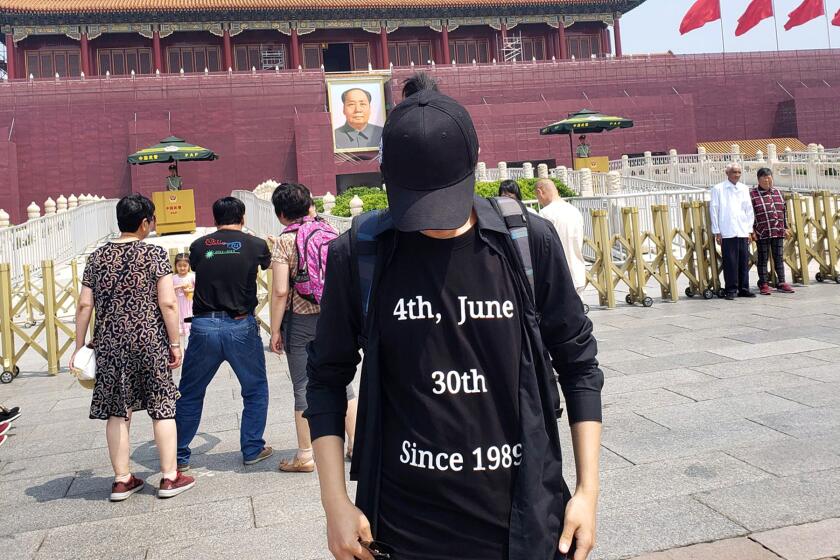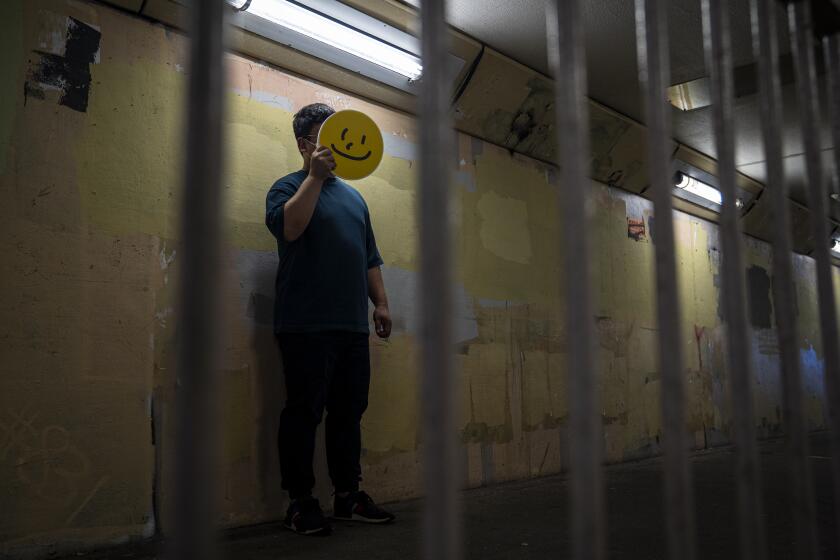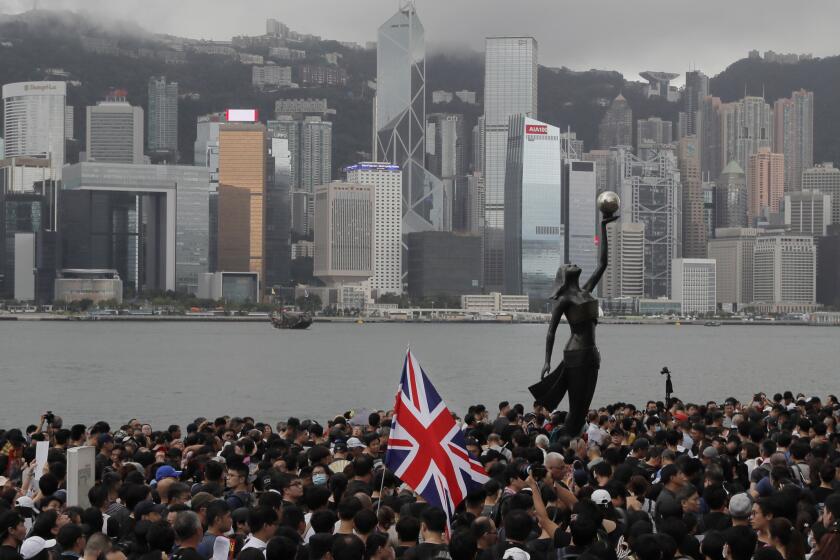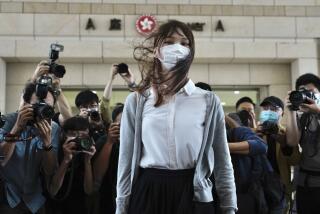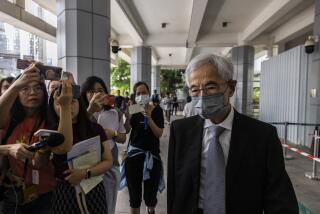Last edition of Hong Kong’s Apple Daily sells all 1 million copies within hours
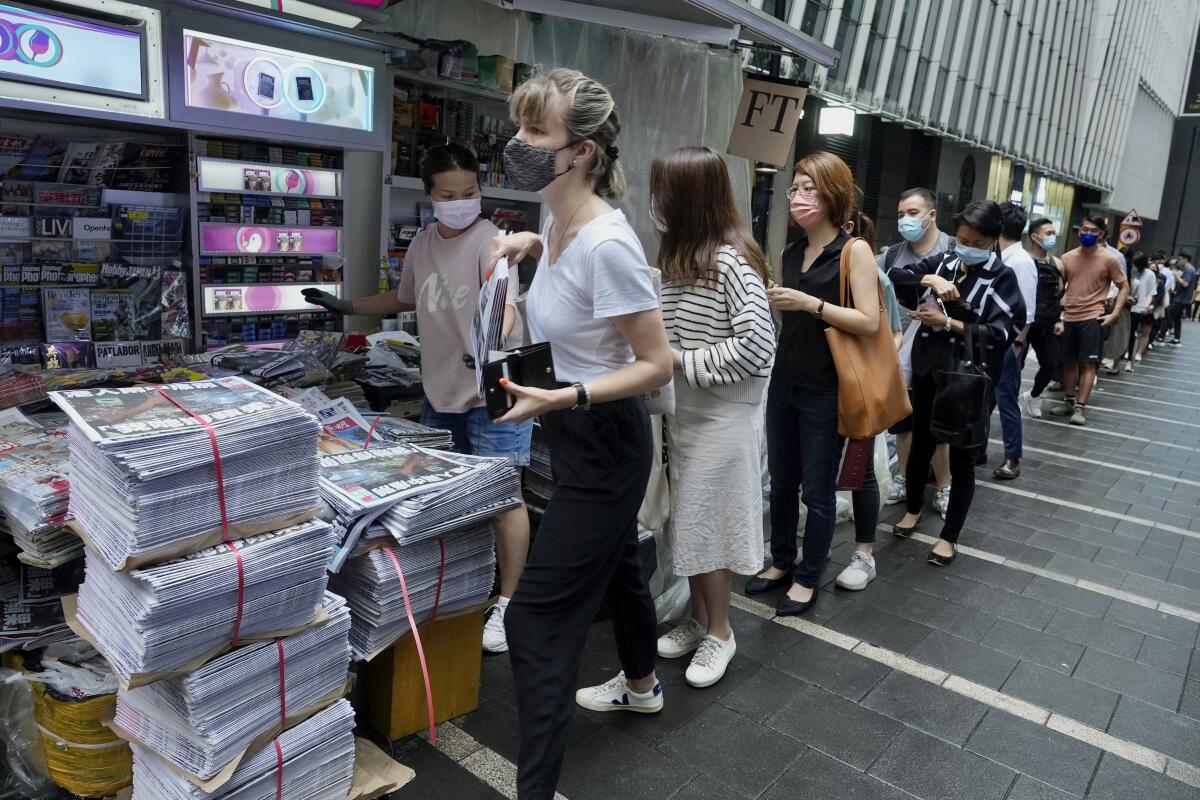
The final edition of Apple Daily, Hong Kong’s last remaining pro-democracy paper, sold out in hours Thursday as readers scooped up all 1 million copies of a tabloid whose closure was yet another sign of China’s tightening grip on the city.
Across the densely populated metropolis, people lined up early in the morning for their chance to buy the paper, which had in recent years become an increasingly outspoken critic of Chinese and Hong Kong authorities’ efforts to limit freedoms not found in mainland China. The paper was gone from newsstands by 8:30 a.m.
The newspaper said it was forced to cease operations after police froze $2.3 million of its assets, searched its office and arrested five top editors and executives last week, accusing them of foreign collusion to endanger national security.
“This is our last day and last edition. Does this reflect the reality that Hong Kong has started to lose its press freedom and freedom of speech?” Dickson Ng, an Apple Daily graphic designer, said in comments to the Associated Press. “Why does it have to end up like this?”
The paper printed 1 million copies for its last edition — up from the usual 80,000. On the front page was an image of an Apple Daily employee in the office waving at supporters surrounding the building, with the headline “Hong Kongers bid a painful farewell in the rain, ‘We support Apple Daily.’”
While pro-democracy media outlets still exist online, it was the only print newspaper of its kind left in the city.
As the Communist Party’s centennial nears, China is erasing official wrongs and party history to create a triumphalist story for a young generation.
The pressure on the paper reflects a broader crackdown on Hong Kong’s civil liberties, ramped up after massive anti-government protests in 2019 unsettled authorities. In response, Beijing imposed a sweeping national security law on the city — which was invoked in the arrests of the newspaper employees — and overhauled Hong Kong’s election laws to keep opposition voices out of the legislature.
The result is that dissenting voices have been almost completely silenced in a city long known as an oasis of freedom on mainland China’s doorstep. The increasing restrictions have come despite China’s promise to protect Hong Kong’s civil liberties for 50 years after the city’s 1997 handover from Britain.
The closure of Apple Daily raises the specter that other media outlets — though none as outspoken — will become even more cautious, such as the English-language South China Morning Post, which has been operating for more than a century. The paper, while identified with the political and business mainstream, has thus far continued to report on controversial issues in Hong Kong and on mainland China, even after its owner, internet business titan Jack Ma, dropped out of sight last year after publicly criticizing Chinese government policies.
Apple Daily’s closure marks a “dark day for press freedom in Hong Kong,” said Thomas Kellogg, executive director of the Georgetown Center for Asian Law.
China’s ‘purification’ of classrooms: A new law erases history, silences teachers and rewrites books
China’s crackdown on Hong Kong is purging teachers, rewriting textbooks and increasing pressure on schools over what to put in the minds of students. A new national security law has endangered freedom of thought and expression.
“Without Apple Daily, Hong Kong is less free than it was a week ago. Apple Daily was an important voice, and it seems unlikely that any other media outlet will be able to fill its shoes, given growing restrictions on free speech and freedom of the press,” he said.
Beijing dismisses such criticism as interference in its internal affairs, and Chinese Foreign Ministry spokesman Zhao Lijian lashed out Thursday at foreign officials who have criticized the legal moves against Apple Daily.
“Press freedom is not an excuse [for] impunity, and whoever disrupts Hong Kong has no extrajudicial privileges,” Zhao told reporters at a daily briefing.
Last week’s arrests of the Apple Daily employees represented the first time the national security law had been used against journalists for something they published.
Breaking News
Get breaking news, investigations, analysis and more signature journalism from the Los Angeles Times in your inbox.
You may occasionally receive promotional content from the Los Angeles Times.
On Wednesday night, more than 100 people stood outside Apple Daily’s office building in the rain to show their support, taking photographs and shouting words of encouragement.
Inside the building, associate publisher Chan Pui-man told staff who gathered around the newsroom to big applause: “You’ve done a great job, everyone!” Chan was one of the five arrested last week.
In the early hours of Thursday, residents in the city’s Mong Kok neighborhood in the working-class Kowloon district began lining up hours before the paper hit the stands.
Apple Daily’s Hong Kong website contained only a notice Thursday that read: “We are sad to inform you that Apple Daily and Next Magazine’s web and app content will no longer be accessible at 23:59, 23 June 2021, HKT.”
Thousands of people are fleeing Hong Kong amid a crackdown by Beijing that prompted Britain to loosen visa rules for residents of its former colony.
“We would like to thank all of our readers, subscribers, advertisers, and Hongkonger[s] for your loyal support,” the notice read.
A similar message was posted on its news app.
In the wake of the announcement of the paper’s closure, British Foreign Secretary Dominic Raab said Hong Kong authorities were using the national security law to curtail freedom and punish dissent, calling the paper’s closure “a chilling demonstration of their campaign to silence all opposition voices.”
More to Read
Start your day right
Sign up for Essential California for news, features and recommendations from the L.A. Times and beyond in your inbox six days a week.
You may occasionally receive promotional content from the Los Angeles Times.
